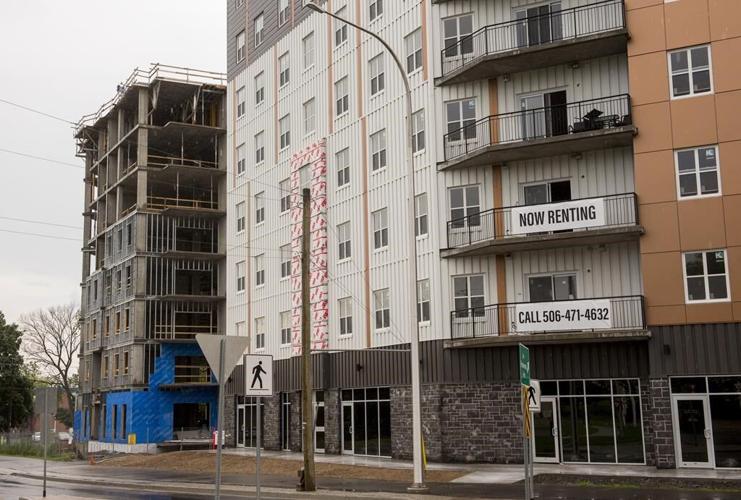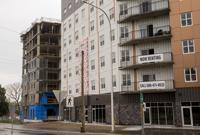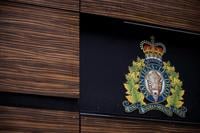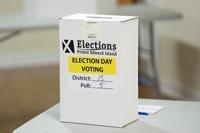FREDERICTON - The New Brunswick government has amassed nearly $41 million in security deposits collected from residential tenants in a practice that is unique in Canada and that critics say needs to change.
The latest annual report from Service New Brunswick showed security deposits sitting at $40.9 million for the 2021-22 fiscal year, up from $36.4 million a year earlier. It is unclear from the numbers how much of the total came from people who had moved out and were entitled to get their deposits back.
Under provincial law, a landlord can require a deposit of up to one month's rent to cover possible damage caused by the tenant. Amendments introduced in 1983 dictated that the province would oversee the collected deposits.
Nichola Taylor, chair of the New Brunswick branch of housing rights group ACORN, called the province's practice of holding onto the security deposits problematic. She said the process of recovering a security deposit is overly complicated, which could explain the swelling sums in provincial coffers.
"What are they spending it on? They are certainly not spending it on making the housing situation better," she said. "You would think if they have all that money stored that money should be going back towards housing to help tenants and to decrease the crisis of affordable housing that we're currently in."
Taylor said that when someone ends a lease, they have to fill out a form requesting their security deposit back from Service New Brunswick. The landlord has a week to decide how much of the money will be held back to cover damages. If there is a dispute, the matter goes before a tribunal.
She and her family experienced the "struggle" of trying to get their money back last year after they changed apartments in Fredericton. Just to request a deposit's return, she noted, people need the tenant number they were assigned when the deposit was made. "We didn't know what ours was," Taylor said. "We managed to find it in the end. But it's just a really long process that's unnecessary, and it causes you a lot of stress."
After a back-and-forth with the Residential Tenancies Tribunal, she said it took more than two months to get back her deposit.
The process is especially burdensome for seniors, newcomers, those who are not intricately aware of the rules and people on fixed incomes who are depending on getting the money back, Taylor said.
"You're not going to understand how to do all that unless you call the Residential Tenancies Tribunal and then you are on hold for ages. It's just unnecessary, very complicated, and very stressful."
A request for comment from the office of Housing Minister Jill Green received no response. Jennifer Vienneau, spokeswoman for Service New Brunswick, said no one was available for an interview but provided an emailed statement.
She said the money collected for security deposits goes into the province’s consolidated accounts. There is no data available on how much interest the province earns from the amounts collected, but Vienneau said short-term interest earned from the deposits "offsets the costs of servicing the public debt."
The Tenant and Landlord Relations Office, which has replaced the Residential Tenancies Tribunal, is responsible for handling security deposits and holding them until they are claimed, she said. When tenants move out, it’s their responsibility to contact Service New Brunswick to claim their deposits, Vienneau added.
A survey of all ºÚÁϳԹÏÍø provinces by ºÚÁϳԹÏÍø showed that New Brunswick is the only one where the government holds onto security deposits.
In British Columbia, the landlord must return the security deposit within 15 days and pay interest from the time they collected the deposit. Any deductions for repairs should be agreed upon in writing with the tenant.
In Alberta, landlords must pay interest on their tenants' security deposits at the end of each tenancy year as determined in a formula set out in regulations. The landlord has 10 days after the tenant leaves to return the damage deposit along with a statement detailing deductions and interest paid.
Yukon, Nunavut, Prince Edward Island and Nova Scotia also require landlords to pay interest on the security deposit. In Saskatchewan, interest is payable to a tenant by a landlord for tenancies over five years.
Megan Mitton, housing critic for New Brunswick's opposition Green Party called the province's system "weird" and said she was shocked at what she called a lack of accountability.
"The system needs to be more clear, and needs to help people get their security deposits back. It's not right for it to be so difficult," she said. "The other thing is that right now, the government is using renter's money as an investment, basically, for government profit. They need to pay back people's interest to them that's rightfully theirs."
Taylor said the entire system in New Brunswick is tipped in landlords' favour.
"We want to see this changed to be a more simpler process because it's not helping tenants whatsoever," she said. "We are seeing tenants struggle to get their damage deposit back."
This report by ºÚÁϳԹÏÍø was first published July 6, 2023.










































